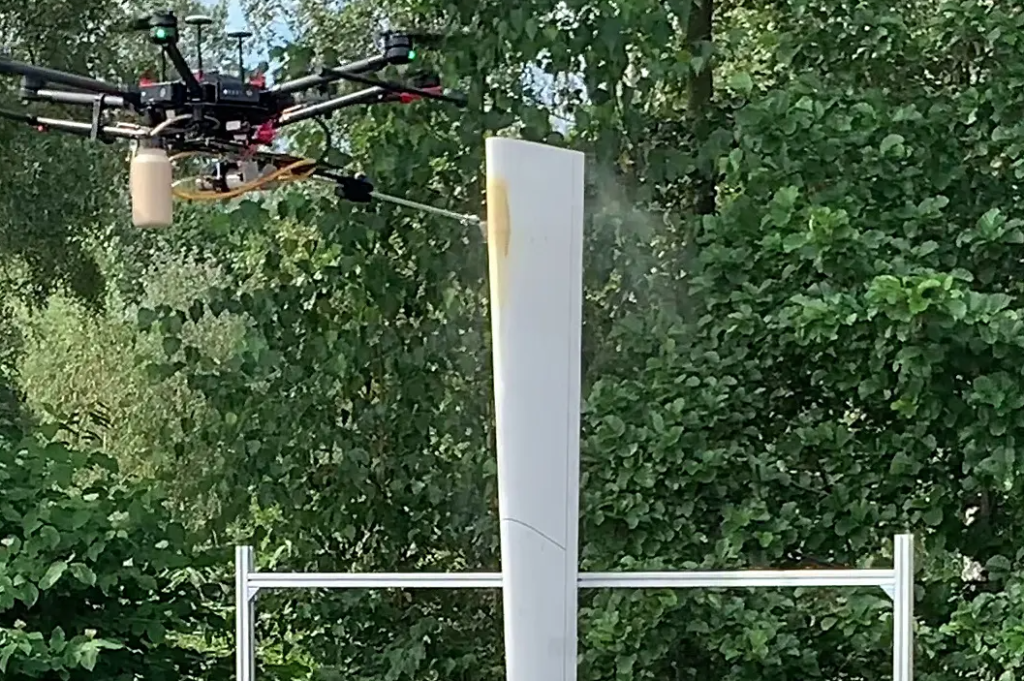How to protect wind turbines from ice?
– Cold and humidity are enemies of wind energy. If an ice layer forms on the rotor blades, a rotational imbalance could be generated that could accelerate component wear. Forcing the wind generators to remain inactive for several days in order not to incur structural damage. Today, however, there are several solutions to protect wind turbines from frost: from heating mats that can be integrated directly into the blades, to systems to pump hot air into the rotors, up to the destruction of antifreeze on the parts through helicopters in flight.
Each of these options has one thing in common: it’s extremely expensive. A tempting alternative comes today from a group of researchers from the Fraunhofer Institute in Germany. The experts of the IFAM Fraunhofer and the IPA Fraunhofer have achieved the same result as the helicopters with antifreeze, using drones and a new, more sustainable blend.
read also China prepares 22MW large offshore wind turbine
As Andreas Stake, project manager at the Fraunhofer IFAM, explains, the solution offers a cost-effective approach, but to make it practical and cost-effective, scientists first had to meet a number of conditions: coating agents sprayed on the blade, In addition to being environmentally friendly, they had to show good adhesion and sufficient durability so they could stay on the rotors for weeks. At the same time, the spraying system used had to be extremely precise and light. Finally, drones had to withstand a high payload and allow accurate control.
The army of drones of the TURBO project
Through the project “TURBO – Temporary Coating Using Drones“, scientists have developed a prototype that meets all these requirements. Based on urea and wax, the coating material is environmentally friendly and adheres well. It also applies easily and dries quickly. The researchers put it to the test in an ice chamber, where it proved it could reliably protect wind turbines from frost.
Then the team built the application system: a small pump that presses at high pressure the mixture of urea and wax in a long and thin tube. The nozzle, with a diameter of only 0.3 millimeters, allows to production of droplets with a diameter of 100 micrometers, spraying them precisely on the edges of the rotor blades where they solidify. The system maintains its accuracy even with a wind speed of 35 kilometers per hour.

